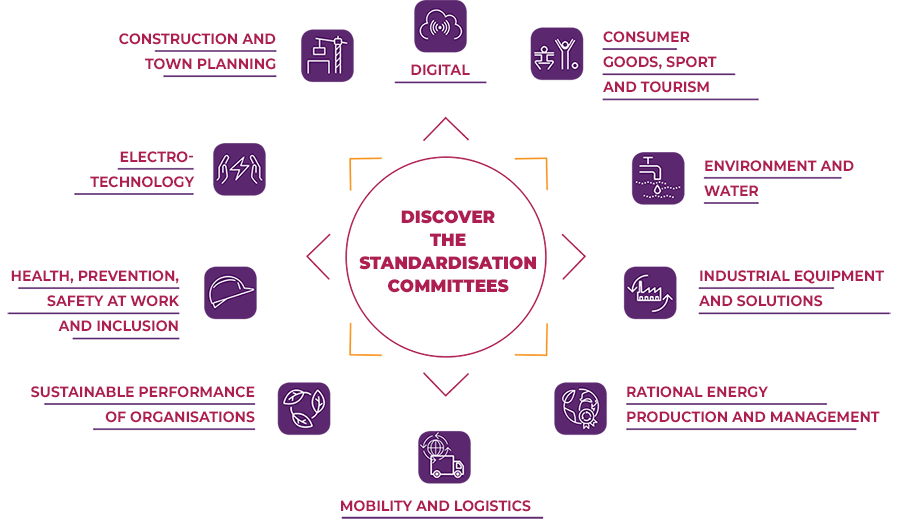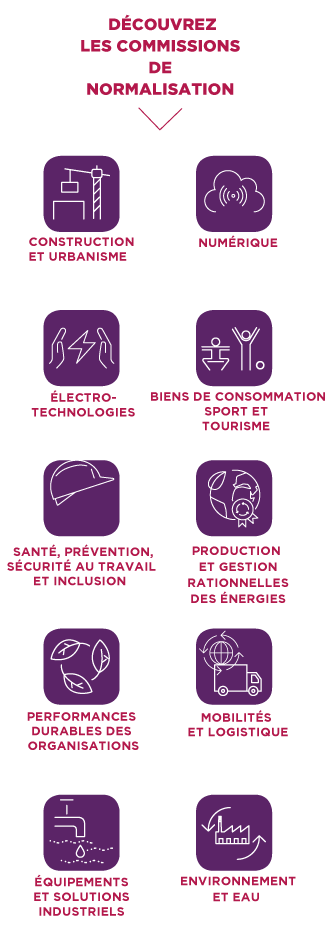Launched on the initiative of market players, a voluntary standard is a reference framework that aims to provide guidelines, technical or qualitative prescriptions for products, services or practices serving the general interest. It is the fruit of a consensual co-production between the professionals and users involved in its development. Any organization may or may not refer to it. This is why the standard is called voluntary.
It acts as a frame of reference for all professional sectors:
Why do we talk about voluntary standards?
Théo, a young entrepreneur, sees the benefits of getting involved in the development of voluntary standards and using them to launch his business… and become more competitive.
What’s the point of a voluntary standard?
Rail spacing, credit card formats, the composition of electronic cigarette e-liquids, toy safety, consumer opinions on forums… our daily lives are enhanced by a set of voluntary standards that set quality, safety and performance standards for all the products, services and practices that surround us.
A genuine reference framework, the voluntary standard facilitates compatibility and upgradability, with the overriding aim of continuous improvement, notably for the benefit of the consumer. This common language transcends geographical boundaries, providing a reliable, intangible reference solution whose legitimacy is guaranteed.
How is a standard produced?
The standard is a collectively co-produced tool of voluntary application. It is the market players who propose its creation, develop it by consensus within a dedicated working group (standardization committees), validate it and apply it.
Standard life cycle
It takes from a few months to 3 years to create a standard. Before being certified, the standard is submitted to the public for approval, whether or not they contributed to its drafting. This is the public inquiry stage.
Once published, any player may or may not refer to it. A living, evolving tool, each standard is reviewed and revised, if necessary, every 5 years, with a view to continuous improvement and reflecting best practices in the field.
Case study: standards for sports
An example of what voluntary standards are for: in the field of sport, standards are welcome to guarantee quality and safety for both amateur and professional users. Equipment, protective helmets, sports halls… We explain the principle and benefits in 5 episodes: canoeing, archery, table tennis, martial arts and dietary supplements for athletes.
MFQ: a game about standards
The MFQ-Bourgogne-Franche-Comté has developed a game based on the NF ISO 37101 standard for sustainable cities. A subtle way of convincing the most resistant to the norm.








